Filter by

Regional Free Trade Areas and Strategic Trade Policies
This book presents a theoretical investigation of the formation of regional free trade agreements (FTAs), the behavior of global enterprises, and government trade policies in various game forms including multi-stage games, repeated games, and timing games. In the last few decades, the number of FTAs has been rapidly increasing in the world, especially in Asia. In particular, East Asian countrie…
- Edition
- -
- ISBN/ISSN
- -
- Collation
- -
- Series Title
- -
- Call Number
- -

Regional Economic Impacts of Terrorist Attacks, Natural Disasters and Metropo…
This book presents a multiregional input-output model for the metropolitan area of Southern California, which helps to estimate the economic impact of simulated terrorist attacks on seaports, malls etc. as well as of natural disasters such as earthquakes and tsunamis. The authors also analyze the economic and social effects of metropolitan policies such as growth controls, neighborhood gentrifi…
- Edition
- -
- ISBN/ISSN
- -
- Collation
- -
- Series Title
- -
- Call Number
- -

Regional Development in Rural Areas: Analytical Tools and Public Policies
This book intends to provide analytical and policy tools for investigating the question of the development of rural and peri-urban areas. The aim is to shed some light on this topic and in particular to contribute to a better understanding of the link between issues of regional or territorial development and issues of rural development. The text addresses the question of the disputed notions an…
- Edition
- -
- ISBN/ISSN
- -
- Collation
- -
- Series Title
- -
- Call Number
- -
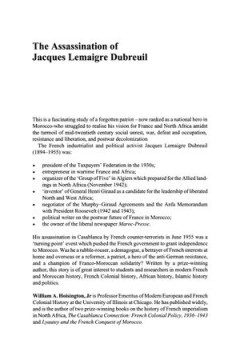
The Assassination of Jacques Lemaigre Dubreuil
This is a political biography of the French industrialist and political activist Jacques Lemaigre Dubreuil (1894-1955), president of the Taxpayers' Federation in the 1930s, entrepreneur in wartime France and Africa, organizer of the 'Group of Five' in Algiers which prepared for the Allied landings in North Africa (November 1942), 'inventor' of General Henri Giraud as a candidate for the leaders…
- Edition
- -
- ISBN/ISSN
- 9780203004968
- Collation
- -
- Series Title
- -
- Call Number
- 960 HOI a
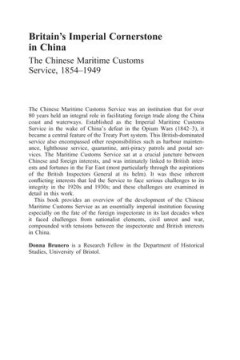
Britain's Imperial Cornerstone in China
This is an in-depth account of the Chinese Imperial Maritime Customs Service, a uniquely cosmopolitan institution established in the wake of China's defeat in the Opium Wars (1842 to 43), and a central feature of the Treaty Port system. The British-dominated service was headed by the famous Robert Hart who founded a far-reaching customs administration that also encompassed other responsibilitie…
- Edition
- -
- ISBN/ISSN
- 9780203315125
- Collation
- -
- Series Title
- -
- Call Number
- 951 BRU b
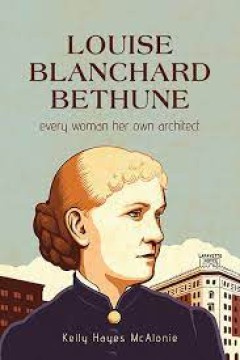
Louise Blanchard Bethune Every Woman Her Own Architect
As America's first professional female architect, Louise Blanchard Bethune broke barriers in a male-dominated profession that was emerging as a vital force in a rapidly growing nation during the Gilded Age. Yet, Bethune herself is an enigma. Due to scant information about her life and her firm, Bethune, Bethune & Fuchs, scholars have struggled to provide a complete picture of this trailblazer. …
- Edition
- -
- ISBN/ISSN
- 9781438492896
- Collation
- -
- Series Title
- -
- Call Number
- -
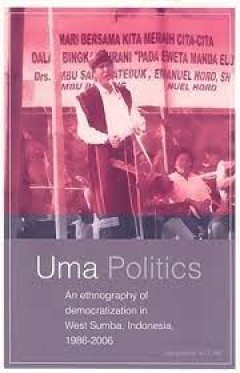
Uma politics; An ethnography of democratization in West Sumba, Indonesia, 198…
Democracy cannot be implemented overnight. Democratization is an often unpredictable process. This book concentrates on that political transformation in one of Indonesia’s most ‘traditional’ islands, Sumba. Why does democratization create such great opportunities for local politicians with their private agenda’s? Why does regional autonomy, as part of the national democratization progra…
- Edition
- -
- ISBN/ISSN
- 9789004253926
- Collation
- -
- Series Title
- -
- Call Number
- -
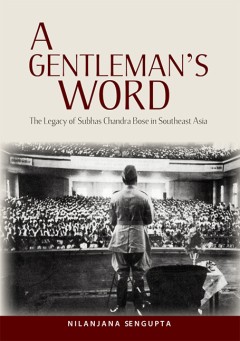
A Gentleman's Word The Legacy of Subhas Chandra Bose in Southeast Asia
The great Indian nationalist leader Subhas Chandra Bose arrived in Singapore in 1943 to revitalize the Indian National Army (INA). Taking the opportunity of the Japanese occupation of parts of Southeast Asia, he launched armed struggle against British colonial rule in India. Two years later, that attempt failed at the eastern gates of India. Yet, it was a temporary failure because the INA helpe…
- Edition
- -
- ISBN/ISSN
- 9789814379793
- Collation
- -
- Series Title
- Books and Monographs
- Call Number
- -
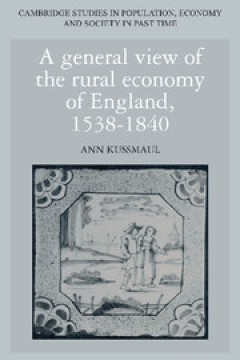
A General View of the Rural Economy of England, 1538–1840
In rural England prior to the Industrial Revolution people generally married when they were not busy with work. Parish registers of marriage therefore form an important and innovative source for the study of economic change in this period. Dr Kussmaul employs marriage dates to identify three main patterns of work and risk (arable, pastoral and rural industrial) and more importantly to show the …
- Edition
- -
- ISBN/ISSN
- 9780511560675
- Collation
- -
- Series Title
- Cambridge Studies in Population, Economy and Society in Past Time
- Call Number
- -
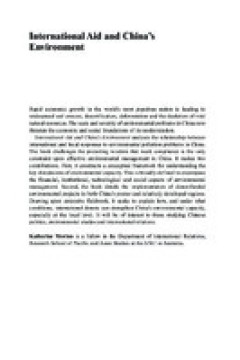
International Aid and China's Environment
Rapid economic growth in the world's most populous nation is leading to widespread soil erosion, desertification, deforestation and the depletion of vital natural resources. The scale and severity of environmental problems in China now threaten the economic and social foundations of its modernization. Using case studies, Morton analyzes the relationship between international and local responses…
- Edition
- -
- ISBN/ISSN
- 9781134183111
- Collation
- -
- Series Title
- -
- Call Number
- -
 Computer Science, Information & General Works
Computer Science, Information & General Works  Philosophy & Psychology
Philosophy & Psychology  Religion
Religion  Social Sciences
Social Sciences  Language
Language  Pure Science
Pure Science  Applied Sciences
Applied Sciences  Art & Recreation
Art & Recreation  Literature
Literature  History & Geography
History & Geography